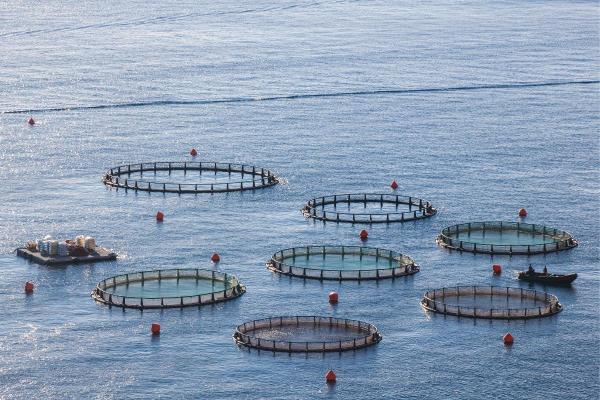To promote the development of an integrated and sustainable Blue Economy, the government established an interministerial commission in 2023 tasked with steering the national roadmap. Although progress has been made, the project still struggles to reach full cruising speed.
« The Blue Economy is not an ecological luxury but a strategic necessity. » This is how His Majesty King Mohammed VI underscored the sector’s importance at the “Africa for the Ocean” Summit, held last month in Nice. In this context, Morocco advocates for a strategic reassessment of Africa’s maritime role, based on three pillars: the development of blue growth, strengthening South-South cooperation and regional integration around oceanic spaces, and consolidating maritime effectiveness through Atlantic synergies.
National Strategy Taking Shape
The contours of the national strategy have been emerging since the signing in 2022 of a landmark $350 million loan agreement between Morocco and the World Bank for the Blue Economy Results Program (PPR EB). In March 2024, signatories completed the program’s fourth supervision mission (from February 26 to March 8) to review progress on projects led by various stakeholders and related activities.
Tangible Results and Persistent Challenges
Results are already tangible: sectors linked to the Blue Economy now contribute 3.8% of GDP in added value and 4.6% in employment. However, the lack of convergence and integration between sectoral approaches risks slowing this momentum. It can lead to inefficient resource use and, in some cases, conflicts between different users of maritime, land, and natural resources.
Seizing Every Opportunity
Lack of coordination also reduces investment opportunities, compromising job creation potential—especially for women and youth—and business development for groups such as artisanal fishers.
Moreover, the report on the New Development Model criticized the failure to comply with Law 81-12 on the coastline and maritime public domain, which affects coastal security, while emphasizing the need to seize opportunities offered by maritime potential in traditional economic sectors such as fishing, tourism, and port activities, but also in new high-potential sectors such as aquaculture, seaweed farming, marine bioproducts, shipbuilding, and renewable marine energies.
The same report stresses that fully harnessing the Blue Economy’s potential requires accelerating the implementation of development plans for Morocco’s nine coastal regions. These recommendations echo those of the Economic, Social and Environmental Council (CESE), which in its 2023 annual report calls for fully exploiting the sector’s potential.
Governance is Key
The governance of the Blue Economy should be supported by a robust national mechanism responsible for co-designing and monitoring the implementation of the national Blue Economy strategy. During a high-level dialogue organized by the Department of Maritime Fisheries, participants emphasized that this mechanism should be supported territorially by deploying regional coastal maritime clusters. The launch of two pilot maritime clusters in the Tanger-Tétouan-Al Hoceima region is expected to contribute to this objective.
Participants also agreed that the alliance of Mediterranean clusters offers coastal Moroccan regions the opportunity to share experiences and create peer-to-peer networking and knowledge-sharing connections.
Financing and Innovation
The Ministry of Finance, playing a pivotal role in this vision, highlighted the importance of mapping existing blue finance and their eligibility criteria. The goal is to make this information available to public and private institutions as well as local authorities to facilitate access to financial resources and optimize their use.
At the same time, research and innovation development appear as essential levers. The creation of a national transversal cluster dedicated to the scientific knowledge of maritime capital and marine resources, as well as green technologies applied to the Blue Economy, constitutes a strategic step.
In conclusion, a clear roadmap is crucial to making the Blue Economy a sustainable driver of growth and prosperity, embedding it within a collective dynamic capable of steering it safely to port.
Source: lopinion




